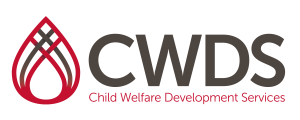CWDS Curriculum
Investigative Interviewing of Pre-Schoolers 3-5 years old
Level: Advanced Practice –Lineworkers
Credits: 6
Intended Audience: This training with interview practicum component is designed for lineworkers who completed the Child Interviewing Institute. It is invitational only.
Intended Objectives:
- Trainees will be able to better assess the developmental level of young children to be interviewed and design appropriate questions for specific children.
- Trainees will be able to describe the variables which affect child maltreatment disclosures from very young children.
- Given a scenario, the trainee will be able to design an age appropriate child interview.
- The trainee will be able to describe common miscommunication and credibility issues with young child interviews.
- The trainee will be able to demonstrate how to evaluate statements/disclosures given by young children concerning sexual abuse.
Topics Include:
- Cognitive, emotional, sexual, and social development of children 3 to 5
- Language and memory development of children 3 to 5
- Young children’s disclosure of abuse: variables
- Interviewing young children: pre-interview, the investigative interview how-to’s
- Avoiding miscommunication and credibility issues with young children
- Evaluating sexual abuse allegations in this population
CalSWEC Competencies Addressed:
1.3 Student demonstrates the ability to conduct an ethically and culturally competent assessment of a child and family and to develop an effective intervention plan.
1.4 Student recognizes personal knowledge limitations regarding specific groups and seeks consultation and expertise as needed to assess and work effectively with clients.
3.1 Student is able to practice basic principals and techniques of interviewing children and families for the purposes of assessment, intervention, and service planning.
3.5 Student demonstrates an understanding of basic child development and how developmental level affects a child’s perception of events, coping strategies, and physical and psychological responses to stress and trauma.
3.7 Student is able to gather, assess, and present pertinent information from interviews, case records, and collateral sources in evaluating an abuse or neglect allegation and making effective referrals for services or further evaluation.
5.1 Student demonstrates understanding of child and youth development, including physical, cognitive, social, and emotional components and can recognize developmental indicators of abuse or neglect.
Posted In:Engagement & Interviewing



